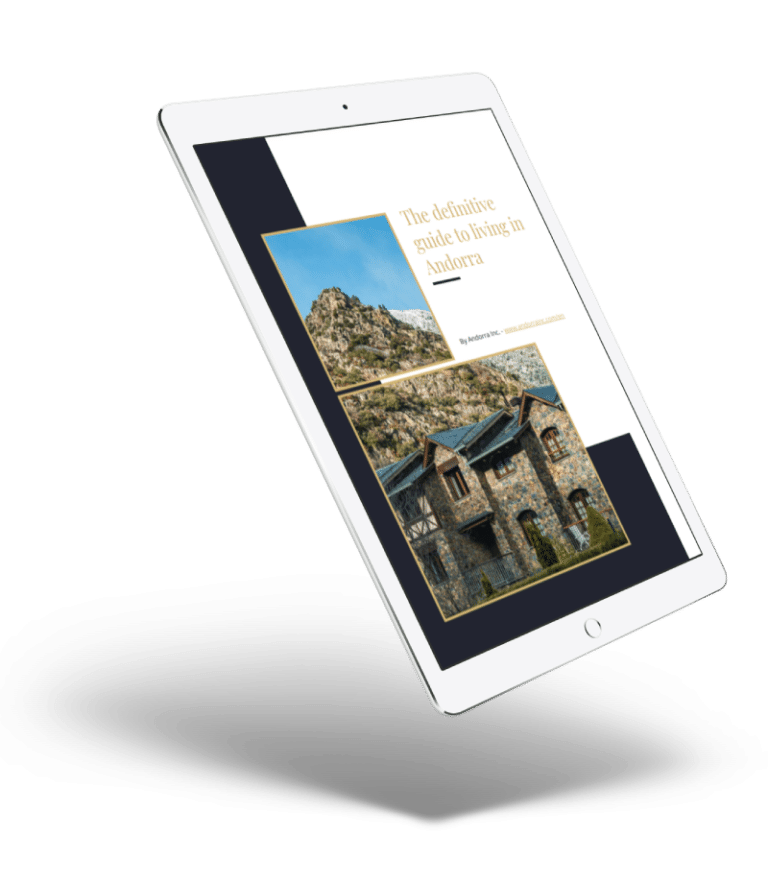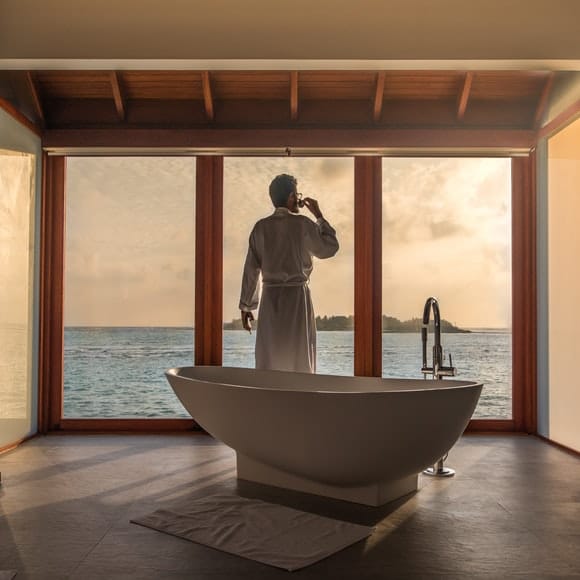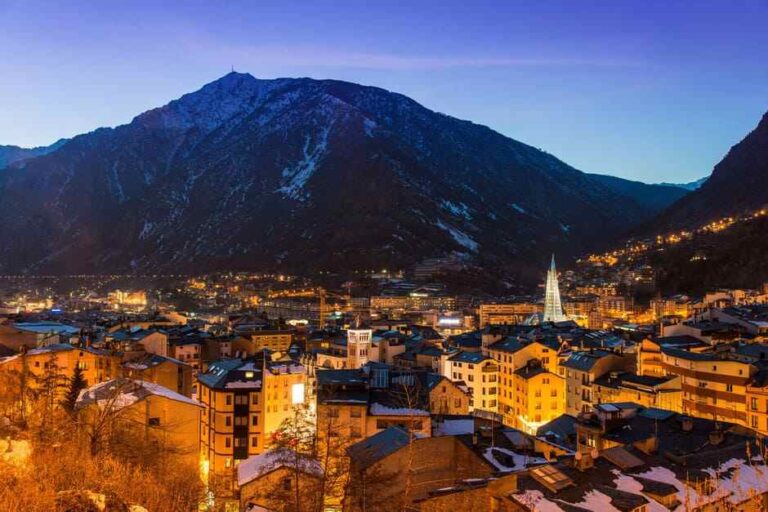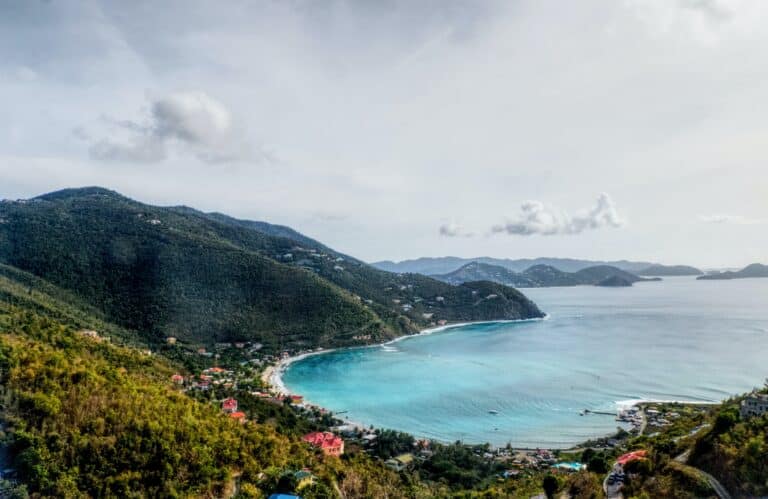
Written by Marc Cantavella, AndorraInc Co-Founder & Andorran Tax Expert
Questions? Ask Marc on Whatsapp
The Andorran passive residency or non-lucrative residency is known by foreigners, especially English speakers, as the Golden Visa due to its similarity to the program offered by other countries under that name. In this article we will refer to it interchangeably as passive residency and as Golden Visa.
It is officially is called non-lucrative or “passive” (“residència passiva” in Catalan) to set it apart from the most commonly used permit in the country: the active residency. While active residency is the entry point for those who move to Andorra for employment (either as employees or self-employed), passive residency involves fewer days of required presence in the country and is particularly intended for individuals who benefit from passive income or income earned outside Andorra.
The Golden Visa also assumes a particular level of purchasing power, since one typically must make a sizable investment (close to €600,000), which we will detail further on.
Below is a comprehensive guide to passive residency, along with its requirements, perks, and principal characteristics.
New report
The report “The definitive guide to living in Andorra” is now available, with detailed information on Andorra’s tax framework, residence and society.
Click here to download it for free.
Who can benefit from Andorra’s Golden Visa?
The Andorran Golden Visa may be granted in the following contexts:
- Due to scientific, cultural, or athletic interests (it has been used by numerous MotoGP professionals).
- For professionals and entrepreneurs undertaking global ventures (major entrepreneurs conducting business “overseas”).
- For investing in Andorra.
Nonetheless, the most prominent route is indisputably the third one: residence through investment. Therefore, in this guide, our focus will be on that aspect.
This option is targeted toward individuals wishing to settle in Andorra without taking on any local employment, supporting themselves mainly through passive income streams. This makes it perfect for retirees and HNWIs (“High-Net-Worth Individuals”) who rely on rental income, investment returns, bank interest, and other externally generated revenue.
In essence, if you possess ample financial resources and are considering taking up residence in Andorra without joining the staff of any company, this type of residence is likely the most fitting choice.
The phrase “without an employment relationship” is crucial, because while this residence permit provides various benefits (as we shall see shortly), it also has the drawback that it is fully incompatible with a local job.
If you obtained the Golden Visa / passive residency and later received an offer you couldn’t refuse from an Andorran firm, you would have to terminate your passive residence and switch to active residence.
In certain situations, you may receive payment for activities outside Andorra or for serving as a manager in an Andorran company, although each of those scenarios would need careful individual assessment.
Advantages of the Golden Visa
Passive residence, despite its initial hurdles (because it caters to those with available capital), offers a range of very appealing benefits. Among these are:
Ideal for non-EU nationals
Andorra enforces fairly strict immigration rules, with some advantages for Spanish, French, and Portuguese nationals, but quite stringent regulations for many other nationalities.
However, passive residency permits straightforward authorization to reside in the Principality for non-EU citizens, which makes this option popular with nationals from countries such as Mexico, Argentina, Uruguay, Russia, etc.
This type of permit is accessible to various non-EU nationals and grants the ability to travel freely in Spain, France, and Portugal.
Less control
It undergoes fewer stringent checks than active self-employed residency. Generally, the Andorran police do not engage in thorough surveillance to verify you have spent the required 90 days in the country.
Fast processing
While the Andorran administration isn’t particularly swift in many aspects, gaining passive residence is still a moderately fast process. Starting from the day the procedure commences, obtaining a passive residency permit usually takes around two months.
Andorran taxation
As we will clarify further on, administrative residence (the permit acquired by means of passive residency) does not instantly qualify you as a tax resident of Andorra.
Nevertheless, if you do become a tax resident by meeting the applicable conditions, you will have the opportunity to enjoy one of the most favorable tax systems available, with low or even negligible tax rates on capital gains, interest, dividends, etc.
We will later delve deeper into Andorra’s remarkable tax framework in this guide.
Low minimum yearly stay
It is extremely practical for those who travel frequently, as you only have to remain in the country for 90 days instead of the 183-day requirement for self-employed residency.
(Recall that here we are discussing the minimum days necessary to uphold administrative residency, but these days may be insufficient for tax residency.)
Requirements
These are the explicit requirements for obtaining Andorran passive residency via investment:
- Possess a property in Andorra or hold a rental agreement.
- Make an investment in a property with a minimum worth of €552,500, secure this amount in a product with an Andorran ISIN, or invest it in an Andorran company.
- A minimum in-country stay requirement of 90 days.
- A police clearance certificate.
- A private health insurance policy.
- A medical certificate drawn up in Andorra.
- A deposit of at least €47,500, plus €9,500 for each dependent (whether a spouse or each child relocating to the Principality under this residence) to the Andorran Financial Authority until the passive residence is concluded.
- Proof of income surpassing 300% of the Andorran minimum wage, which in 2023 is €1,286.13, plus an added 100% of that wage for each dependent.
Overall, the Golden Visa residence calls for a €600,000 investment in addition to evidence that you are financially self-sufficient.
The investment amount
Below are the various allowable options for your investment:
- Real estate situated within Andorran territory
- Shares in Andorran-registered businesses
- Debt or financial instruments issued by Andorran entities
- Debt securities issued by any governmental body in the Principality of Andorra
- Life insurance contracts with insurers resident in Andorra
- Non-interest-bearing deposits held at the Andorran Financial Authority
Earlier, we cited €552,500. Technically, the law mandates a total investment of €600,000, but it also stipulates that:
- €47,500 is deposited interest-free with the AFA (Andorran Financial Authority)
- A further €9,500 is deposited with the AFA for each of your dependents
- The sums deposited with the AFA are deducted from the €600,000 amount
Hence, the figure of €552,500 is simply a simplification that applies solely if you relocate without any dependents.
The final sum you must invest follows from subtracting the standard €47,500 deposit plus €9,500 per dependent from the total €600,000. For instance, if you arrived with a spouse and three children, your AFA deposit would total €85,500, leaving €514,500 for real estate (or any other acceptable) investment.
You are eligible to recoup the sum deposited at the AFA at any point you terminate your residency—whether by leaving Andorra or transitioning to a different type of residence permit.
New report
The report “The definitive guide to living in Andorra” is now available, with detailed information on Andorra’s tax framework, residence and society.
Click here to download it for free.
The real estate option
Although there are multiple potential ways to invest, the reality is that most individuals pursuing the Golden Visa residency do so via real estate acquisition.
Even though real estate prices in Andorra have increased substantially in recent years (they now match prices seen in cities such as Barcelona or Madrid), those seeking passive residency with AndorraInc typically don’t find those prices excessive.
In fact, passive residents hailing from the U.S., the U.K., Norway, the UAE, or Monaco are often pleasantly surprised at local property prices, which are still significantly below those in their home countries.
Nevertheless, the quick surge in housing costs poses a real issue for the local government. Consequently, a tax was recently introduced targeting foreign buyers who are non-residents or residents with fewer than three years’ residence:
- 3% on the first property purchased
- 5% on the second property
This surcharge is a one-time levy collected during the property purchase, rather than an annual obligation.
In practice, if you buy real estate to qualify for the Golden Visa, you will need to pay this surcharge, given that you will not have fulfilled the three-year residency threshold.
The tax resident condition
Some advisors misrepresent passive Andorran residency and its 90-day requirement as a magic bullet that drastically lowers one’s taxes while allowing continued living in the same country of origin. This is entirely incorrect.
It is essential to differentiate between administrative residence and tax residence, which was mentioned earlier:
- Administrative residence: the authorization (through passive residence / Golden Visa) that grants legal permission to reside in the country. The distinction we referenced previously is key:
- Tax residence: the duty (and, in Andorra’s context, privilege) of filing taxes in a certain country. In broad terms, it normally involves remaining in one country for at least 183 days a year and establishing your primary economic and familial ties there.
For Andorran authorities, brief absences do not necessarily deduct from your in-country day count, especially if there are no substantial ties indicating your center of interests lies elsewhere. Nonetheless, we always suggest spending at least 183 days in Andorra if you aim to keep paying taxes in the Principality and want to avert scrutiny from other jurisdictions.
What taxes would I pay?
Income Tax
Firstly, consider income tax, covering earned income (whether from abroad or via a position as a director of an Andorran company), along with rental revenue:
- Yearly income of up to €24,000: free from tax. If you earn €24,000 or below, there is no tax due.
- Income between €24,000 and €40,000: subject to a 5% rate.
- Income above €40,000: subject to a 10% rate.
For example, with an annual income of €70,000:
- The first €24,000 is taxed at 0% (exempt from tax).
- The portion from €24,000 to €40,000 is taxed at 5% (generating €800 in taxes).
- The portion from €40,000 to €70,000 is taxed at 10% (generating €3,000 in taxes).
Hence, the total tax on €70,000 in yearly earnings would be €3,800.
Capital Gains
In Andorra, capital gains from selling a company or stock shares depend on the percentage of ownership and the length of time you’ve owned the shares. The rules are as follows:
- Ownership at or below 25%: capital gains on the sale of those shares are tax-exempt.
- Ownership above 25%: capital gains are taxed at 10%.
- Exemption: once the shares have been held for more than 10 years, any capital gains become exempt, irrespective of ownership percentage.
In other words, if you sell shares where your holding exceeds 25%, your profits are taxed at 10% unless you have possessed the shares for over 10 years, in which case you pay no tax. Whether these involve stock holdings or the sale of a company, taxes only apply to net gains, which is the difference between the purchase price and the eventual sale price.
Regarding real estate, earnings from selling a property are subject to a rate that starts at 15% if sold in the first year and drops year by year. After 12 years, no tax is imposed on the capital gain.
New report
The report “The definitive guide to living in Andorra” is now available, with detailed information on Andorra’s tax framework, residence and society.
Click here to download it for free.
Other Financial Investments
- Dividends:
- From Andorran businesses: dividend payments are fully tax-free.
- From companies outside Andorra: dividends are taxed at a rate of 10%.
- Interest from bonds and bank deposits: taxed at 10%.
- Cryptocurrencies: any gains derived from trading are taxed at 10% income tax.
- Derivatives: profits from products like futures or options are taxed at 10%.
To obtain a rough estimate of your potential tax bill in Andorra, you can check out our tax calculator.
Thinking about moving to Andorra?
If you’re thinking about relocating to Andorra, we suggest reading the “Definitive Guide to Living in Andorra”, which contains the most comprehensive details on Andorran taxes, residence, and way of life.
For any other inquiries, please feel free to get in touch with us.
You can contact us without obligation in the following ways:
- By sending an email to [email protected]
- Or by filling out the form below:
Sources
-
- https://www.consellgeneral.ad/ca/arxiu/arxiu-de-lleis-i-textos-aprovats-en-legislatures-anteriors/vi-legislatura-2011-2015/copy_of_lleis-aprovades/llei-5-2014-del-24-d2019abril-de-l2019impost-sobre-la-renda-de-les-persones-fisiques
- https://www.bopa.ad/Documents/Detall?doc=CGL_2024_02_21_14_02_59
- https://www.bopa.ad/bopa/034148/Pagines/CGL20221219_11_51_10.aspx
- https://www.afa.ad/


 All communications are encrypted and will be treated with absolute confidentiality. Your data will never be shared with third parties.
All communications are encrypted and will be treated with absolute confidentiality. Your data will never be shared with third parties. 




